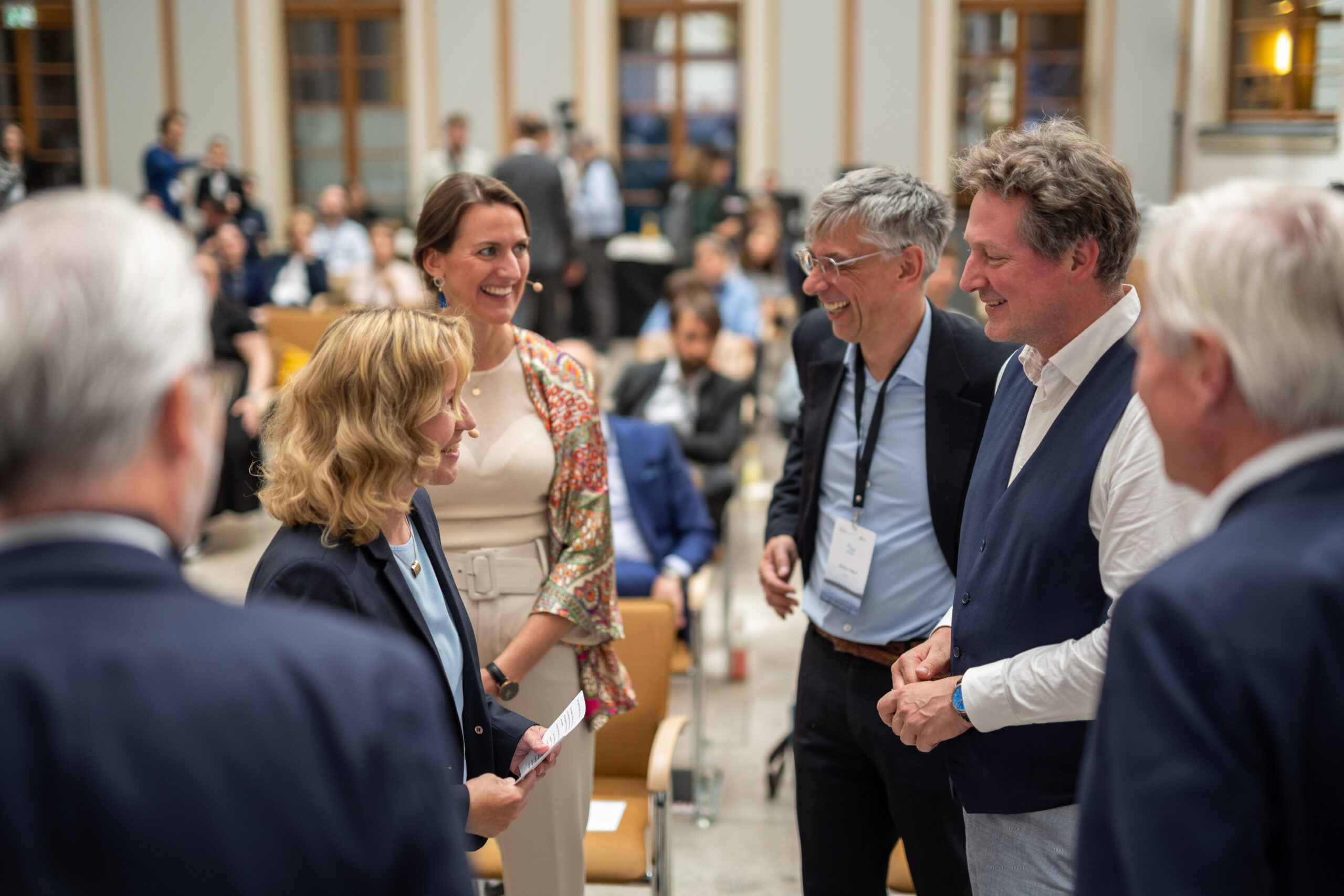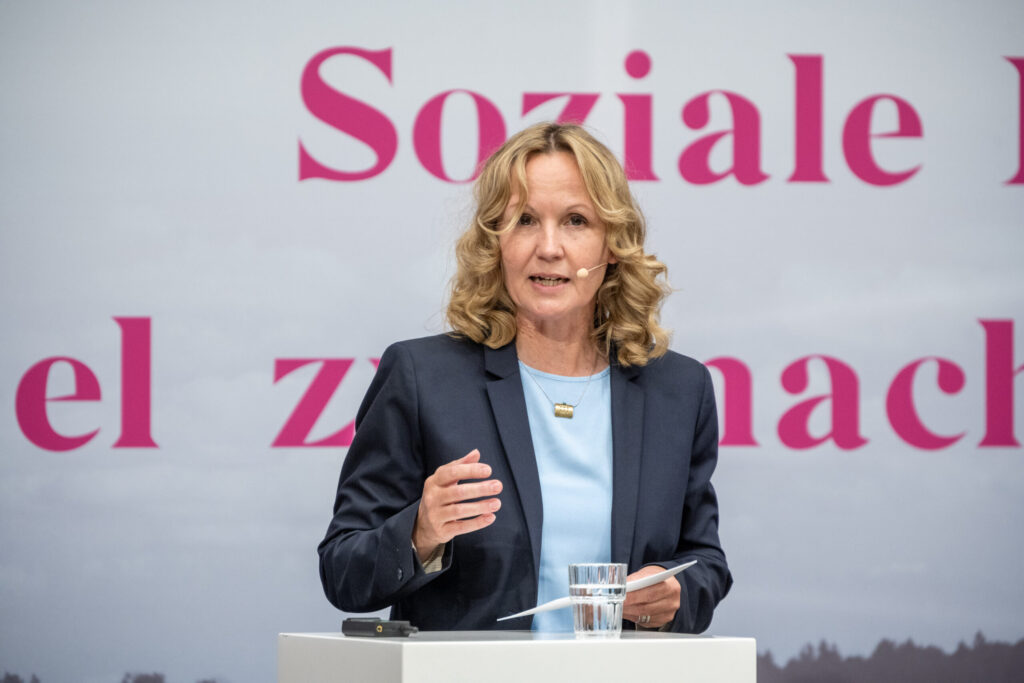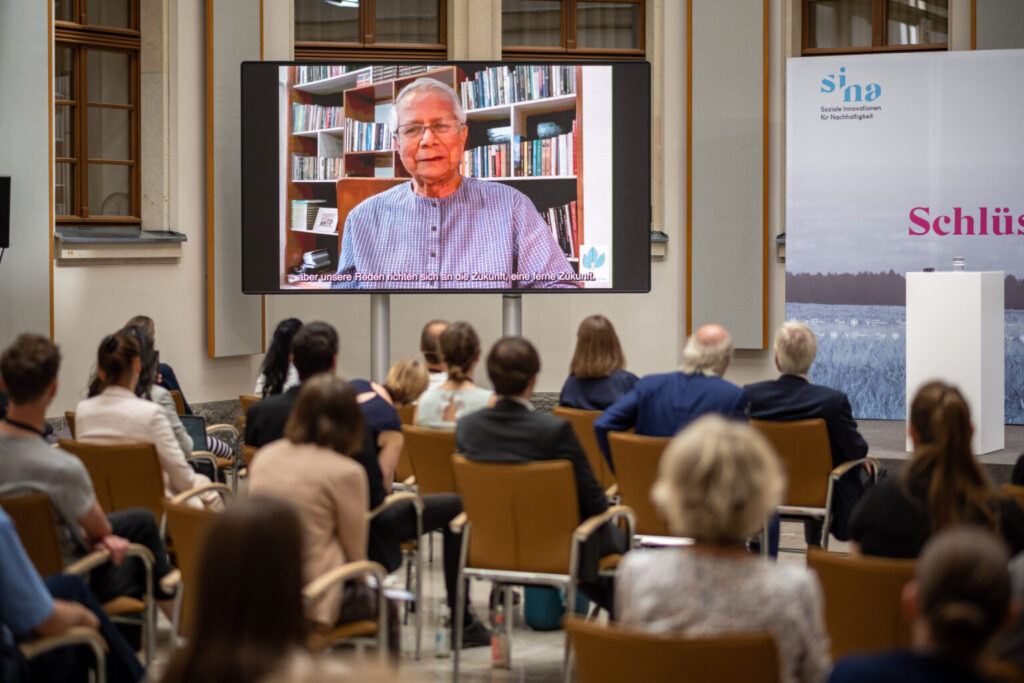“The big question we need to answer is this – are we bringing the world back to where it was before the coronavirus? Or are we reinventing the world? The decision is in our hands.” Prof. Muhammad Yunus

On June 15th, 2022, the public launch event of the SINA project (SINA is the German acronym for “Social Innovations for Sustainability”), which Yunus Environment Hub is carrying out on behalf of the Federal Ministry for the Environment, took place at the German Federal Ministry for the Environment, Nature Conservation, Nuclear Safety and Consumer Protection in Berlin.
Around 100 stakeholders from associations, politics, business and society joined the conversation about social innovations. Yunus Environment Hub informed the public about the project and presented the first findings of the work and discussed the relevance of social innovations for sustainability with stakeholders from practice and experts.
Federal Environment Minister, Steffi Lemke, opened the event: “Environmental and climate protection are drivers of innovation. So far, the focus has often been on technical innovations. But the socio-ecological turnaround will only succeed if social innovations and ecological goals are thought of more closely together. Social Innovations have great potential for environmental and climate protection: They change processes, social practices, and organizational structures in the long term. So far, however, they have not been sufficiently recognized, appreciated, and promoted in Germany. I want to change that because we have some catching up to do here. The SINA project was launched to better understand how politics can support social innovations for sustainable development.”


After the welcome by Minister Lemke and a video message from Nobel Peace Prize Laureate Prof. Muhammad Yunus, Christina Jäger, Co-founder & Managing Director of Yunus Environment Hub, presented details of the SINA project. This was followed by an insight into practice by Christian Kroll, Founder & Managing Director of the search engine Ecosia, which is a successful example of social innovation in the field of sustainability: the energy requirements of the search engine are covered by 300% through self-generated renewable energies, and the company’s income is used to finance reforestation projects worldwide.
The panel discussion that followed was devoted to the question of what role social innovations play in achieving environmental goals and the sustainability transformation of society as a whole in Germany. Guests speakers at the panel discussion were Dr. Eckart von Hirschhausen, doctor, science journalist and founder of the Healthy Earth – Healthy People Foundation, Prof. Dr. Eva Alexandra Jakob, Junior Professor for Social Entrepreneurship at the University of Bayreuth, Prof. Dr. Michael Otto, Chairman of the Otto Group Supervisory Board and founder of Michael Otto Environmental Foundation, Sina Trinkwalder, Founder & Managing Director of Manomama, and Stefan Tidow, State Secretary in the Federal Ministry for the Environment, Nature Conservation, Nuclear Safety and Consumer Protection.
Among other issues, the participants discussed where the greatest potential for social innovations can be found, as well as the obstacles and structural disadvantages, what role political actors and institutions play, how social innovations can be anchored more firmly in the economy and which role they play for companies.
The stage program was followed by an open reception, during which the participants were able to exchange ideas and the central topics and questions of the SINA project were presented.
The SINA project aims to facilitate the basic understanding of social innovations, close gaps in the research and funding landscape, identify open questions and develop concrete policy recommendations for action. The results of the project will flow into the cross-departmental development of a national strategy for social enterprises announced in the German Government coalition agreement, which is also intended to give greater support to social innovations.
More information on www.si-na.org (german)